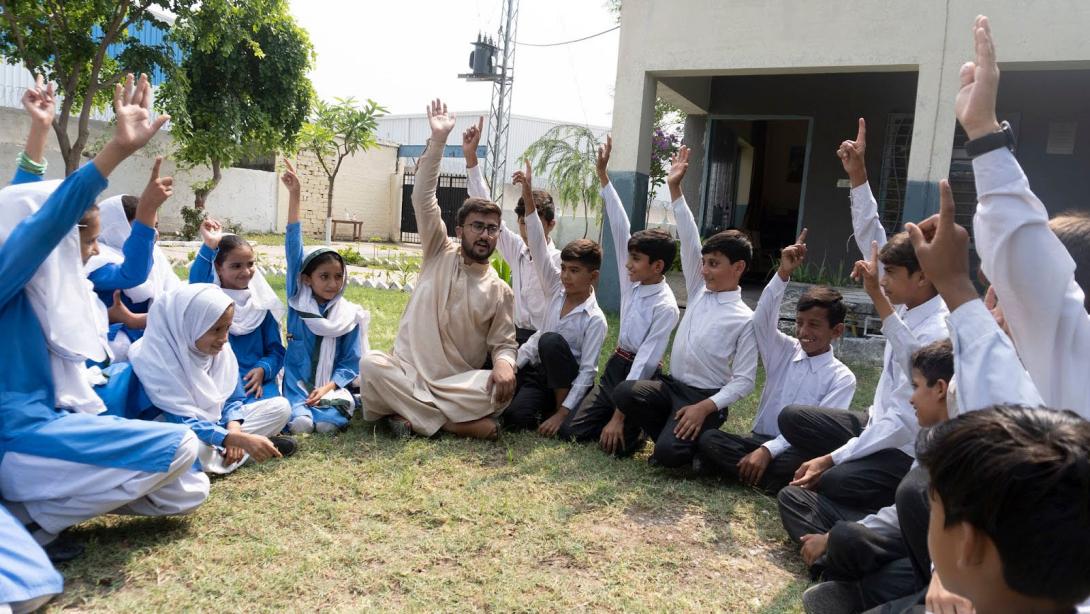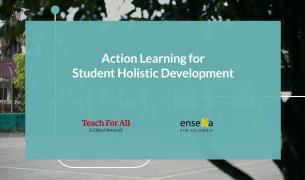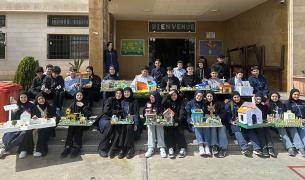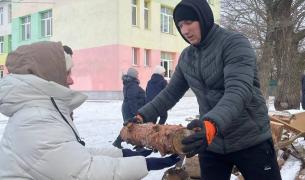Accelerating holistic student development: New evidence and future directions from Teach For All

A growing body of research shows that when teachers are supported to foster both academic achievement and social and emotional learning (SEL), student learning accelerates (Cipriano et al., 2023; Jones et al., 2021; Grant et al., 2017). However, many educational systems continue to prioritize academic outcomes in ways that can overlook – or even undermine – students’ holistic development (OECD, 2024; Challenging the False Dichotomy: An Evidence Synthesis, 2023) This gap between what evidence suggests is possible and how systems are developing and supporting teachers means that SEL outcomes are underdeveloped. We offer evidence, reflections, and new directions from our network in an attempt to bridge evidence and practice on how to support teachers to improve holistic outcomes.
At Teach For All, we see the vast potential of developing holistic outcomes to accelerate learning in classrooms and systems to equip students to ultimately shape a better future. We’ve aspired to learn about what it takes to support teachers to have impact on holistic development in two complementary and powerful ways: by learning from practitioners as an important source of evidence and knowledge, and by engaging in formal research to understand the impact of our network partners’ efforts to train and support teachers for holistic student development.
Learning from practice, we’ve studied thousands of transformational teachers who are accelerating mastery while also fostering agency, well-being, connectedness, and awareness. These emerging patterns are captured in Teaching as Collective Leadership - a framework for fostering the leadership and holistic development of everyone in the classroom from the students to the teachers themselves. Many partner organizations across our network are reflecting on this framework to guide their teacher training and support strategies, in the hopes of developing even more transformational teachers.
We’ve also partnered with independent researchers at the RAND Corporation and local research institutions to study network partners’ efforts to cultivate holistic student outcomes. Evidence from recent impact evaluations show that network partner teachers can improve academic learning outcomes. Impact evaluations reveal that students of Teach For Nigeria, Enseña Perú, and Teach For Pakistan achieve the equivalent of 2 to 5 additional months of learning progress in foundational literacy and mathematics compared to their peers taught by other teachers (Schweig et al., 2025, Mihaly et al., 2024, Lavado & Guzman, 2020). This builds on decades of studies of Teach For America which have shown that students of TFA teachers perform significantly better in mathematics and in science when compared to their peers (Citkowicz et al. 2024).
Recent studies have also investigated to what extent partners are fostering SEL alongside academic outcomes using mixed methods. Across most studies, qualitatively, interviews and observations consistently highlight how teachers in our network are engaging in constructivist, student-centered approaches and contribute to positive changes in SEL outcomes. Studies of Enseña por México and Teach For Armenia reveal their participants have improved, measurable impact on student SEL (Microanalitica, 2017 and Bozeman et al. 2025). Other studies show network teachers are improving student SEL at rates similar to other teachers (Mihaly, et al., 2024, Schweig et al., 2025, Bustamante et al., 2025 [forthcoming]).
Evidence from Teach For Pakistan
RAND Education and Labor recently released a new impact evaluation on Teach For Pakistan, revealing significant gains in student learning outcomes yet less conclusive evidence on the impact on SEL outcomes. Teach For Pakistan teachers work in classrooms where students have low levels of foundational literacy and numeracy and often start the school year behind grade level standards. Despite this gap, students taught by Teach For Pakistan teachers achieved an effect that can be interpreted as an additional 6 months of learning progress in literacy compared to students taught by non-Teach For Pakistan teachers within one year. In mathematics, this figure rose to 10 months, equivalent to a full year of additional learning. Notably, in science, students experienced 16 months of additional learning gains, representing two additional years of academic progress. These results are considered medium to large effect sizes when compared to other educational interventions (Kraft, 2020).
While quantitative analysis did not detect significant change in student SEL outcomes, stakeholder interviews from school leaders, other teachers, and parents consistently reported notable improvements in students' confidence, perseverance, and sense of responsibility. Peers of Teach For Pakistan teachers recognized them for their student-centered teaching, and students noted that their Teach For Pakistan teachers created supportive and caring classroom environments where students feel empowered to lead, think critically, and ask questions—practices that effectively bridge learning gaps and ignite curiosity.
What is driving these learning improvements and practices in Teach For Pakistan classrooms? Although the RAND study doesn't establish a direct cause-and-effect between aspects of the program and learning outcomes, we can associate these findings with the following program elements:
- Recruitment and selection of purpose-aligned teachers: A robust, competency-based recruitment and selection process to identify and attract teachers committed to holistic development
- Training, support, and coaching: An intensive training and coaching model that enables teachers to set their own holistic classroom visions and to adapt and implement pedagogy and curriculum based on their students' academic and SEL
- Diagnosing student learning levels: A strong focus on diagnostic, formative, and summative assessments to identify students' actual learning levels early in the school year, and regular feedback cycles with students and teachers on progress throughout the year
- Community engagement: Teach For Pakistan teachers engage in community-led projects in their schools and communities to address specific student needs
"My teacher always motivates us, saying that if we study exhibiting our full interest, then we may achieve our goals…They let us write our life goals. And push us to do our best to achieve them.” – Student, Teach For Pakistan
Learning our way forward for improved holistic outcomes
There is a need for more research focused on identifying the characteristics and practices of teachers who measurably foster students' SEL. Alongside this, we continue to grapple with questions about how to more accurately measure holistic outcomes and their enabling conditions such as teachers’ beliefs and mindsets. Consistent with most global SEL studies, our research primarily relied on student self-reported surveys as a quantitative measure for SEL outcomes. However, we acknowledge the need for diverse and more comprehensive measurement methodologies.
This study and many other experiences are leading us to start a new initiative that builds on this evidence and takes it forward in exciting ways. The recently launched Global Institute for Shaping a Better Future, an initiative of Teach For All, and its Research and Learning Lab are working towards a shift in education to develop students holistically. The Research and Learning Lab will engage in new research and measurement projects that bridge the gap in education between evidence from research and practice. We will engage in collaborative learning with researchers and practitioners within and beyond our network to continue to surface lessons from transformational teachers and teacher training programs, invest in new ways of measuring holistic outcomes of students and teachers, and accelerate action learning in classrooms and teacher development organizations. Some questions and hypotheses that are guiding us include:
- What can we learn from transformational classrooms and teacher development programs that are leading to holistic student development?
- How do adaptive approaches to teacher development that emphasize mindsets, beliefs, and leadership of teachers in addition to knowledge and skills improve holistic student outcomes?
- How can we better measure holistic outcomes of students and teachers?
We look forward to sharing what we are learning from these collaborative efforts, and we invite others who are asking these or similar questions about the future of education to connect and learn together with us. By setting holistic student development as our goal and grounding our work in rigorous evidence and measurement, we aspire to reshape education systems that will grow students as leaders of a better future.


